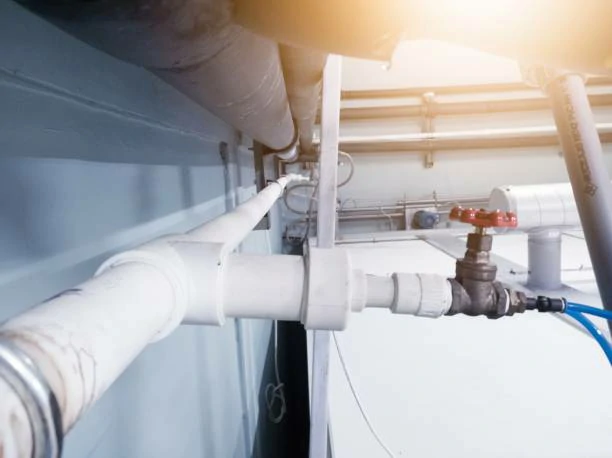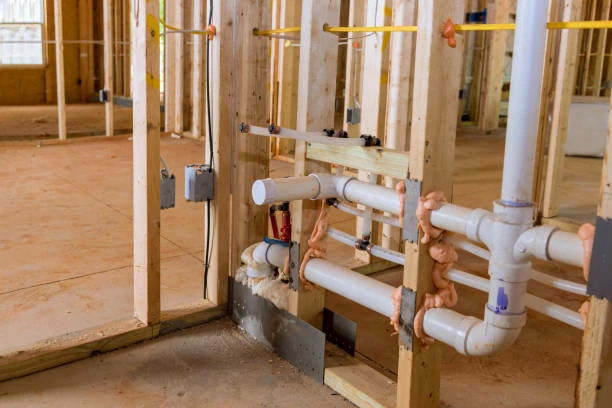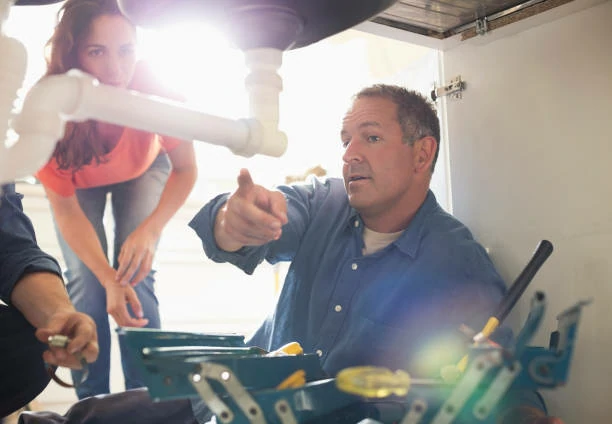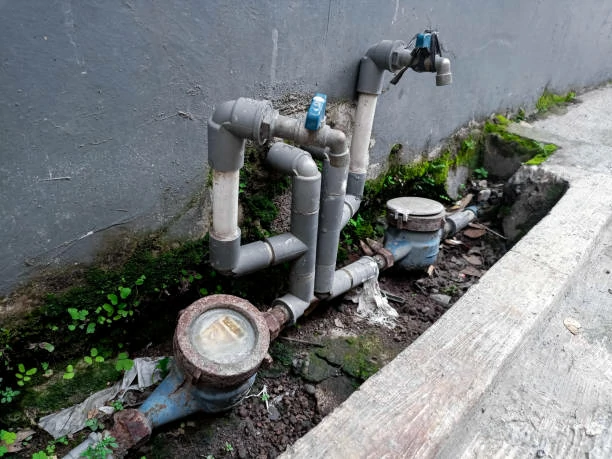Brass pipe fittings are essential components in many plumbing systems, known for their strength, durability, and versatility. Understanding the compatibility of brass pipe fittings with various materials and systems is crucial for ensuring the longevity and effectiveness of a plumbing installation. This article explores the factors influencing the compatibility of brass pipe fittings and how they interact with different materials and applications.
Chemical Compatibility
Brass pipe fittings exhibit strong resistance to corrosion and chemical damage, making them suitable for a wide range of fluids and gases. The alloy’s resistance to corrosion stems from the combination of copper and zinc, which protects the fittings from rust and degradation.
- Water Systems: Brass fittings work well with water systems, including potable water. They resist the corrosion typically caused by water’s natural elements, such as minerals and dissolved gases. However, in highly acidic or alkaline water conditions, the use of brass may be limited. In such cases, special coatings or linings may be necessary to prevent corrosion.
- Oil and Gas: Brass fittings are compatible with many oils and gases. They provide reliable performance in systems transporting petroleum-based products, natural gas, and other hydrocarbons. The resistance to chemical reactions ensures that brass fittings maintain their integrity and prevent leaks.
- Chemicals: In chemical applications, the specific chemicals used determine the compatibility of brass fittings. While brass can withstand many common chemicals, some aggressive chemicals might react with brass, causing corrosion or degradation.It’s important to consult chemical compatibility charts or experts to determine suitability for specific chemical applications.
Temperature Compatibility
Brass pipe fittings are designed to handle a range of temperatures, making them versatile for various applications. Their ability to maintain strength and functionality under temperature fluctuations is a significant advantage.
- Hot Water Systems: Brass fittings perform well in hot water systems, including those with temperatures exceeding 100°C (212°F). The material’s thermal conductivity helps distribute heat evenly, reducing the risk of localized overheating and failure.
- Cold Water Systems: In cold water systems, brass fittings maintain their strength and durability even in freezing temperatures. Brass’s resistance to brittleness and cracking at low temperatures makes it a reliable choice for systems exposed to cold conditions.
- Extreme Temperatures: For applications involving extreme temperatures, both high and low, brass fittings can generally handle moderate extremes. However, for very high temperatures or cryogenic applications, other materials such as stainless steel or specialized alloys may be more appropriate.
Pressure Compatibility
Designers engineer brass pipe fittings to handle various pressure levels, making them suitable for many applications.Their ability to withstand high pressure without deforming or failing is a key feature.
- Low to Medium Pressure: Brass fittings are commonly used in systems with low to medium pressure requirements. They provide reliable performance in residential plumbing, heating systems, and low-pressure gas applications.
- High Pressure: For high-pressure applications, brass fittings are available with specific ratings to ensure safety and reliability. The thickness and design of the fittings contribute to their ability to manage high-pressure conditions effectively.
- Pressure Fluctuations: Brass fittings can handle pressure fluctuations to some extent. However, in systems with frequent or severe pressure changes, it is crucial to select fittings rated for such conditions to prevent issues like leaks or failures.
Material Compatibility
The interaction between brass pipe fittings and other materials in a plumbing system can impact the overall performance and longevity of the system.
- Copper Pipes: Brass fittings are highly compatible with copper pipes. The two materials bond well and provide a reliable, leak-proof connection. This combination is commonly used in plumbing systems due to its durability and resistance to corrosion.
- PVC and CPVC Pipes: You can use brass fittings with PVC (polyvinyl chloride) and CPVC (chlorinated polyvinyl chloride) pipes by employing appropriate adapters.The transition between brass and plastic pipes requires proper fittings to ensure a secure and leak-free connection.
- Stainless Steel Pipes: Brass fittings can also be used with stainless steel pipes. The combination offers high strength and corrosion resistance. However, it is essential to consider the potential for galvanic corrosion when combining dissimilar metals. Using dielectric unions or coatings can mitigate this risk.
Installation Considerations
Proper installation of brass pipe fittings is crucial for ensuring their compatibility and performance. The installation process involves several considerations:
- Threaded Connections: Brass fittings often use threaded connections. Ensure that the threads match correctly and tighten them properly to prevent leaks and secure the connection.
- Soldering and Welding: In some cases, join brass fittings to pipes using soldering or welding. Use proper techniques and materials to create a strong, leak-proof joint.
- Sealing and Gaskets: Apply appropriate sealing materials and gaskets to maintain compatibility and prevent leaks. For threaded connections, use Teflon tape or pipe dope to create a watertight seal.
Environmental Factors
Environmental conditions can affect the compatibility and performance of brass pipe fittings.
- Exposure to Moisture: While brass is resistant to corrosion, prolonged exposure to moisture can still impact its performance. Ensuring that fittings are installed in dry conditions or properly protected can extend their lifespan.
- UV Exposure: Brass fittings exposed to direct sunlight or UV radiation may experience surface degradation over time. For outdoor applications, protective coatings or shields can help maintain the fittings’ integrity.
- Chemical Environments: In environments with high levels of chemicals or pollutants, brass fittings may require additional protection or special coatings to prevent corrosion and degradation.
Maintenance and Longevity
Maintaining brass pipe fittings helps ensure their continued compatibility and performance.
- Regular Inspections: Regular inspections of brass fittings help identify any signs of wear, corrosion, or leaks. Prompt maintenance or replacement of damaged fittings prevents issues from escalating.
- Cleaning: Proper cleaning of brass fittings, especially in systems carrying chemicals or oils, helps maintain their performance. Avoid harsh cleaning agents that could damage the brass surface.
- Replacement: When brass fittings show significant signs of wear or damage, it is essential to replace them with new fittings. This proactive approach ensures the continued effectiveness of the plumbing system. Thus, regular inspections and timely replacements help maintain optimal performance and prevent potential issues.
List of Top Brass Pipe Fittings Suppliers
| Company Name | Location | Years Of Experience | Certificates |
| IFAN | Zhuji, China | 1993 | ISO certification |
| ASC Engineered Solutions | USA | 2019 | ISO certification |
| Patel Precision Works | India | over 21 years | ISO certification |
| RED-WHITE VALVE CORP | USA | 1971 | ISO certification |
| SVF Flow Controls | USA | 1988 | ISO certification |
| Soval | USA | 1971 | ISO certification |
IFAN Standard
IFAN provides products that comply with a wide range of international standards, including ISO 15875, GB/T 18992, DIN 16892, ASTM F877, ASTM F2788, BS 7291, BS EN ISO 15875, and CSA B137. These standards ensure that IFAN’s products meet the highest quality and safety requirements for various applications. By adhering to these rigorous standards, IFAN guarantees the reliability and performance of its products in diverse global markets.
Conclusion
Brass pipe fittings play a crucial role in modern piping systems due to their durability, versatility, and ease of use. Their applications span residential plumbing, industrial settings, HVAC systems, and more. The benefits of brass fittings, including their machinability, thermal conductivity, and aesthetic appeal, make them a preferred choice in many industries.
As industries continue to seek reliable and high-performance components, brass pipe fittings remain a valuable option. Their combination of functional and aesthetic advantages ensures that they continue to meet the demands of various applications, maintaining their relevance and importance in modern piping systems.
Contact
IFAN is a professional manufacturer with 30 years of experience, dedicated to producing high-quality plastic pipes, fittings, and valves. Our products include brass valves, PPR valves, as well as various pipes and fittings to meet different customer needs. Whether you need plumbing and drainage pipes or valve products, IFAN can provide a diverse range of high-quality, cost-effective products to support your projects. Below is our contact information.
We will reply your email or fax within 24 hours.
You can call us at any time if there is any question on our production.
For more information,pls visit our webside https://www.ifanplus.com/
Pls Mailto: [email protected]
Whatsapp: + 86 19857948982






